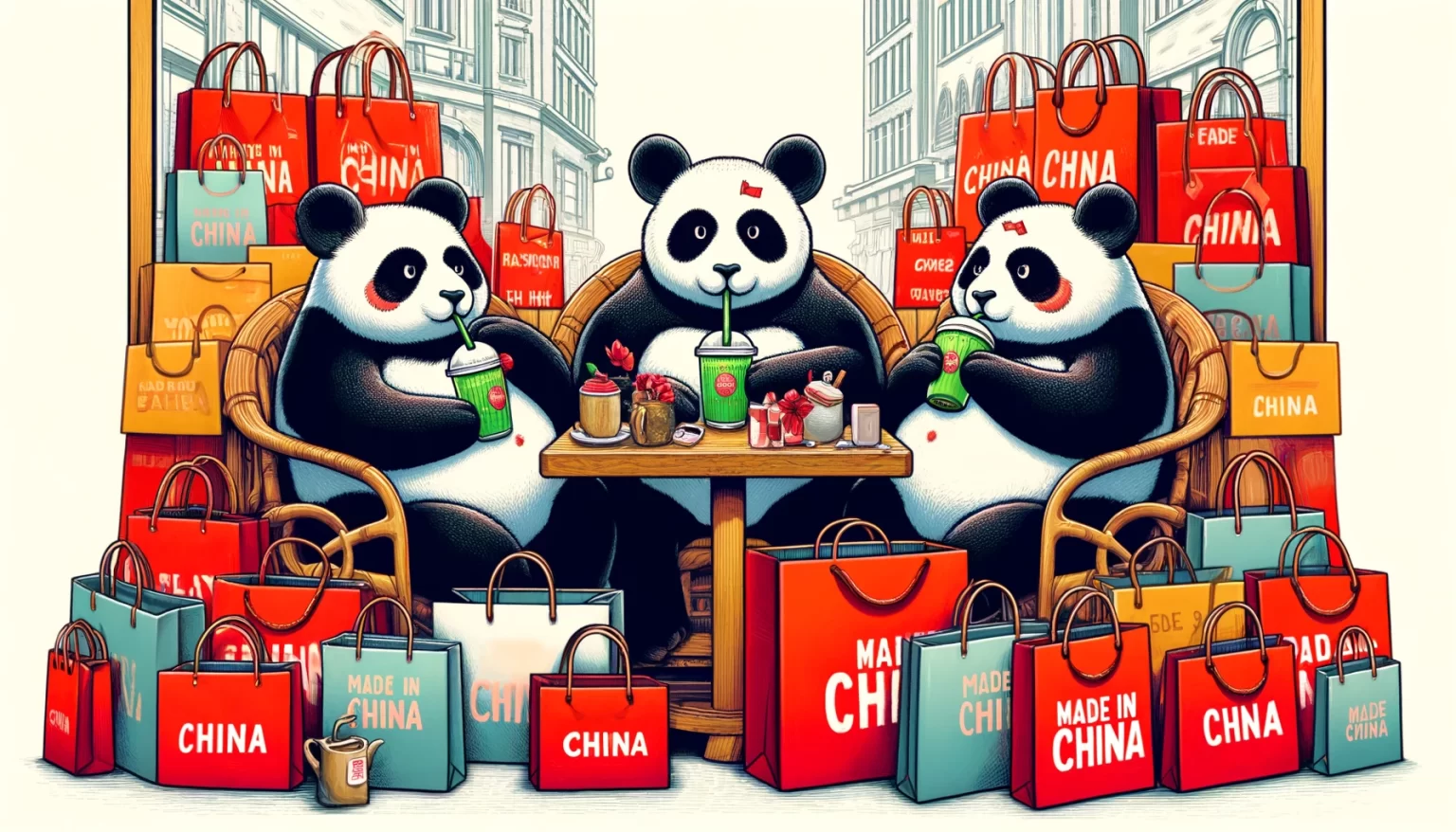

Panda Diplomacy: Balancing Soft Power And Economic Challenges
Uncover the strategic role of panda diplomacy in global politics, where China employs its cherished pandas as ambassadors of goodwill, enhancing diplomatic relationships and extending its soft power influence across the world.
By | Kristin Hynes,
MAY 06, 2024 | 08:11 AM

The concept of soft power has been attributed to political scientist Joseph S. Nye, Jr, a term he coined in the 1980s. Whereas hard power uses military and economic means to persuade the behavior of other countries or actors, soft power seeks to influence others via attraction or persuasion rather than coercion. For Nye, soft power is not to be viewed as a weakness, and he believes that neglecting it is a serious mistake. This is not to say that hard power is irrelevant, but that it is crucial that nations nurture their soft power as well.
Hollywood is a prime example of soft power. The U.S. has utilized its entertainment industry for decades to appeal to people all over the world. South Korea has emerged as another notable example of a country leveraging its entertainment industry for soft power influence. In addition to films, television shows, and music, a nation’s cuisine can also play a role, with countries such as Italy and Japan using their culinary heritage to engage with epicureans globally. Other examples of soft power include sports, fashion, art, and literature.
China has a unique approach to soft power — panda diplomacy, which involves sending pandas to other countries to strengthen diplomatic relations. Since the Tang Dynasty (618-907 CE), China has offered pandas as a symbol of friendship and goodwill. Previously, China gifted pandas to other nations, but it has since transitioned to loan agreements, allowing pandas to be temporarily housed abroad. This practice allows the Chinese to build guanxi, or personal connections and networks with foreign governments. By engaging in panda diplomacy, China can enhance diplomatic ties while also promoting a sense of cooperation between nations.
Even though many countries are delighted to receive these beloved animals, panda diplomacy is not without criticism. For one, the practice raises concerns about their treatment and well-being. Keeping pandas is expensive and they can eat as much as ninety pounds each day. Furthermore, while pandas are no longer endangered, they are still at risk, with just over 1,800 of them in the wild. With such a relatively small population, they are vulnerable, which shows the importance of conservation efforts to protect pandas in their natural habitats rather than using them as diplomatic tools.
A second point of contention relates to the cost of the loaning of these animals. If the pandas are not gifted, the borrower must pay an annual fee. China charges $500,000 USD a year per panda. The cost of transporting, housing, feeding, and leasing the pandas can add up significantly. According to an article by Nikkei Asia, pandas are high-maintenance, and the former CEO of Zoo Atlanta has stated that caring for pandas costs five times more than elephants, which are the zoo’s second most expensive animal.
Following the 1997 Asian Financial Crisis that heavily impacted South Korea, the country was forced to send back its pandas due to insufficient funds. In January 2023, a financially constrained Finnish zoo announced it was preparing to send back their pandas much earlier than their fifteen-year contract had stipulated. The pandas had only arrived in Finland in 2018. However, three months later, the zoo revealed that the duo would remain in Finland for the time being. If pandas are sent back early, there is the question of how this can impact relations between the host country and China. Doing so could strain diplomatic ties, as returning the pandas earlier than anticipated might be perceived as a failure to uphold commitments.
South Korea has recently bid goodbye to Fu Bao, although this time it was not due to financial constraints. Fu Bao, the country’s first naturally bred panda, was born in 2020 to Ai Bao and Le Bao. Under the Convention on International Trade in Endangered Species of Wild Fauna and Flora, pandas and their offspring remain the property of China. The offspring must be returned to China before they turn four. Since Fu Bao will turn four in July, she needed to be returned to China per the rules of the treaty.
Over the years, relations between South Korea and China have been rocky. For example, both countries have clashed over THAAD (Terminal High Altitude Area Defense), a U.S. missile defense shield. South Korea installed the system in 2017 as a response to threats by North Korea. Following THAAD’s installation, China became concerned that the anti-missile system could be used to conduct surveillance within its borders, which caused Beijing to retaliate by suspending group tours to South Korea and dismantling South Korean supermarket giant Lotte in China.
Fu Bao’s recent return to China, which was live-streamed, caused an uproar among her Korean fans after a man was found putting his finger through one of the breathing holes in her transport container and touching her while not wearing gloves. A Chinese journalist was also criticized for not wearing a mask while visiting Fu Bao during her quarantine period. Criticism arose after he shared a photo of himself alongside the panda. He later deleted the post.
This past month also saw the mayor of a major U.S. city visit China after receiving a personal invitation to do so. London Breed, San Francisco’s mayor, has stated that she has signed an agreement to bring pandas to the San Francisco Zoo and that they will come to the zoo after she is able to obtain the necessary resources. But as San Francisco is facing a significant budget deficit, the question is whether the city can afford the costs associated with hosting a panda. Usually, pandas are loaned for three to ten years, and San Francisco is expected to be in a budget deficit of more than a billion U.S. dollars by 2027.
In a time where many cities, and more broadly, countries, are facing inflation, the decision to commit to hosting a panda becomes even more complex. While the allure of panda diplomacy as a tool for fostering international relations is appealing, many nations are struggling financially.
Inflation has put pressure on budgets, and difficult decisions have needed to be made about where to allocate funds. Although panda diplomacy may offer symbolic benefits for the relations between China and other countries, a financial strain may cause the host country to think about returning the pandas early, as has been seen with Finland and South Korea. Time will reveal the feasibility of this form of soft power in an age where economic challenges are prevalent.


